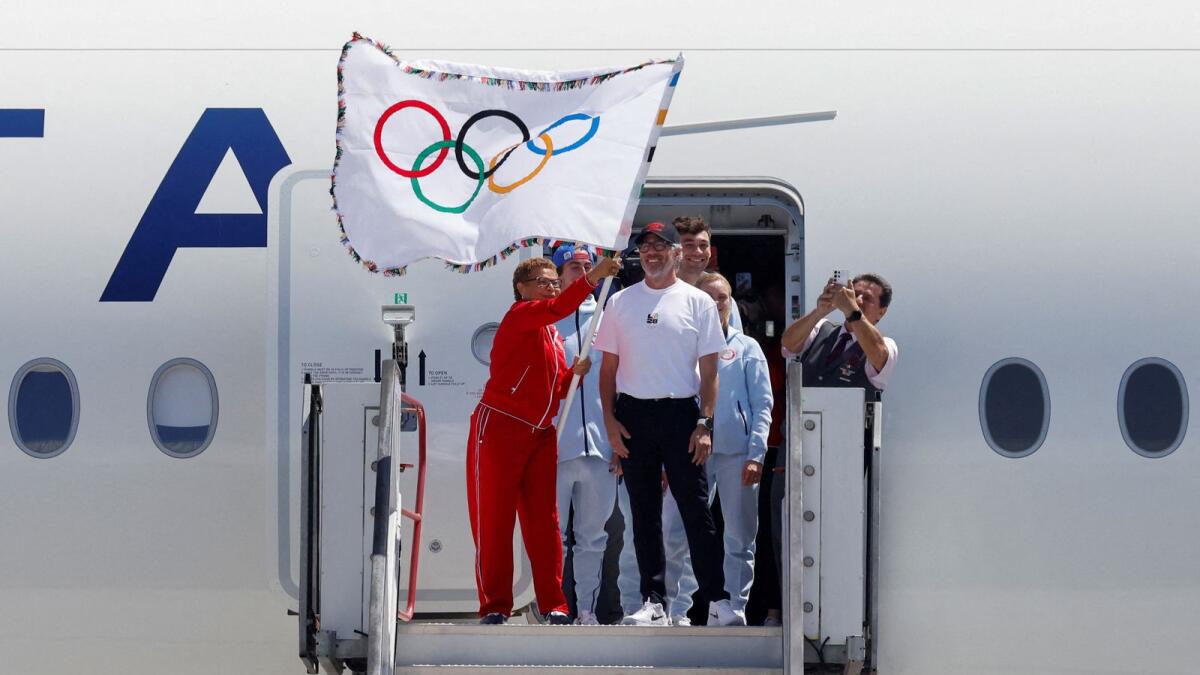The official Olympic flag has landed in Los Angeles, marking the start of the countdown to the 2028 Games. Mayor Karen Bass and LA28 Chairman Casey Wasserman received the flag upon arrival and expressed their commitment to making the event a success. Despite potential challenges, such as earthquakes and traffic congestion, the city is determined to deliver a memorable and well-organized Games that will live up to the standards set by the recent Paris Olympics.
Mayor Bass highlighted the need for preparedness, especially in handling natural disasters like earthquakes and unforeseen climate events. One of the major challenges ahead will be transportation, with plans in place for a “no-car Games” in a city heavily reliant on private vehicles. Los Angeles aims to prioritize public transport and create dedicated lanes for buses to alleviate traffic congestion during the Games. With infrastructure improvements and strategic planning, the city hopes to create a seamless and efficient transport system for athletes and visitors.
In preparation for the Games, Los Angeles is focusing on expanding its public transportation network and reducing reliance on private cars. The city plans to utilize buses from around the country and implement dedicated lanes to ensure smooth movement during the busy event. While private cars will not be banned, public transport will receive priority, and parking may be limited at Olympic sites to ease congestion. Residents are encouraged to consider alternative travel options to avoid the expected traffic congestion during the Games.
Los Angeles is leveraging its reputation as a hub for entertainment and sports to host a successful Olympics in 2028. With iconic landmarks like Hollywood and state-of-the-art sports facilities, the city aims to showcase its creative spirit and diversity to a global audience. Despite its glamorous image, Los Angeles faces challenges like homelessness, with thousands of individuals lacking proper housing. Acknowledging this issue, Mayor Bass has made addressing homelessness a priority, with recent shelter programs showing signs of progress in reducing the overall homeless population.
As the city prepares to welcome athletes and spectators from around the world, Los Angeles is committed to delivering a memorable and successful Olympic Games in 2028. With a focus on infrastructure improvements, transportation enhancements, and addressing social issues like homelessness, the city aims to showcase its diverse culture and sporting prowess to the global audience. By leveraging its unique assets and overcoming potential challenges, Los Angeles is determined to make the 2028 Olympics a showcase of excellence and innovation.










